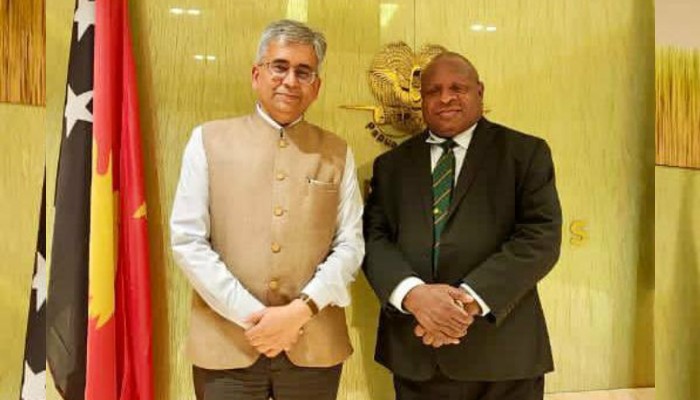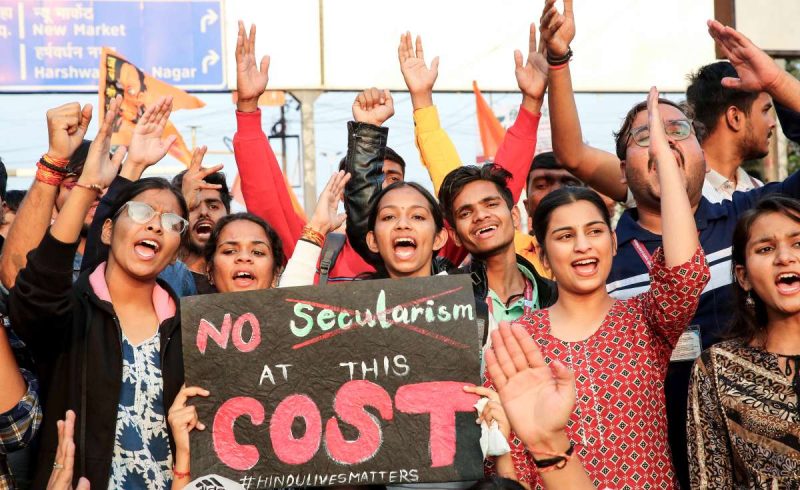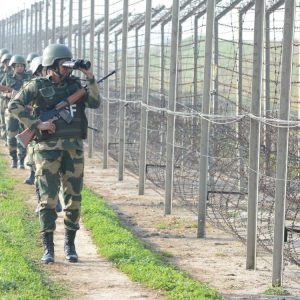During the consultations held at Port Moresby, the two sides exchanged views on regional and global issues, and cooperation in multilateral fora…reports Asian Lite News
India and Papua New Guinea held first round of Foreign Office Consultations on Monday and reviewed the entire gamut of bilateral relations, including development partnership, and political, economic and cultural ties.
During the consultations held at Port Moresby, the two sides exchanged views on regional and global issues, and cooperation in multilateral fora. The Indian side was led by Saurabh Kumar, Secretary (East), and Papua New Guinea side was led by Elias Wohengu, Secretary of the Department of Foreign Affairs.
“During the FoC, both sides reviewed the entire gamut of bilateral relations, including development partnership, and political, economic and cultural ties. They also discussed the joint hosting by the two countries of the third Summit of the Forum for India-Pacific Islands Cooperation (FIPIC) to be held in Port Moresby,” an MEA release said.
Saurabh Kumar paid floral tributes at the bust of Mahatma Gandhi and unveiled the plaque at the Centre for Excellence in Information Technology (CEIT), established by the Government of India in the University of Papua New Guinea in Port Moresby.
The Centre offers specialized training programmes in Information Communication and Technology (ICT) to the local population.
It was decided to hold the next round of FoC in Delhi at mutually convenient dates, the release said. (ANI)
2050 Strategy of PIF
In July, the Pacific Islands Forum (PIF) has launched the 2050 Strategy for the Blue Pacific Continent (2050 Strategy), which sets the vision and direction for the region and provides a framework for all development partners to align their cooperation with the island countries.
The 2050 Strategy determines regional cooperation and broader action around the seven key thematic areas of political leadership and regionalism, people-centered development, peace and security, resource and economic development, climate change, ocean and environment, and technology and connectivity.
The 2050 Strategy builds on a long history of working together, which dates back to the establishment of the PIF in 1971 to strengthen their collective voice and reveal their commitment to political and economic cooperation, said the leaders.
“In this context, the 2050 Strategy sets out our long-term approach to working together as a region, and as countries and territories, communities, and people of the Pacific,” the leaders added.














